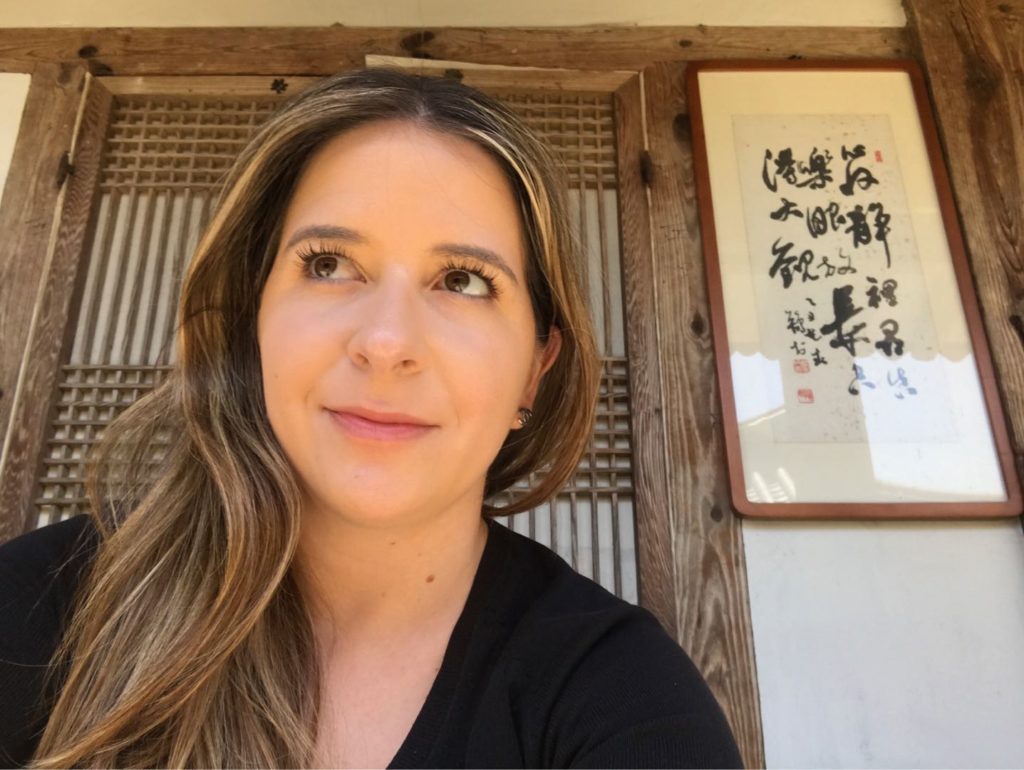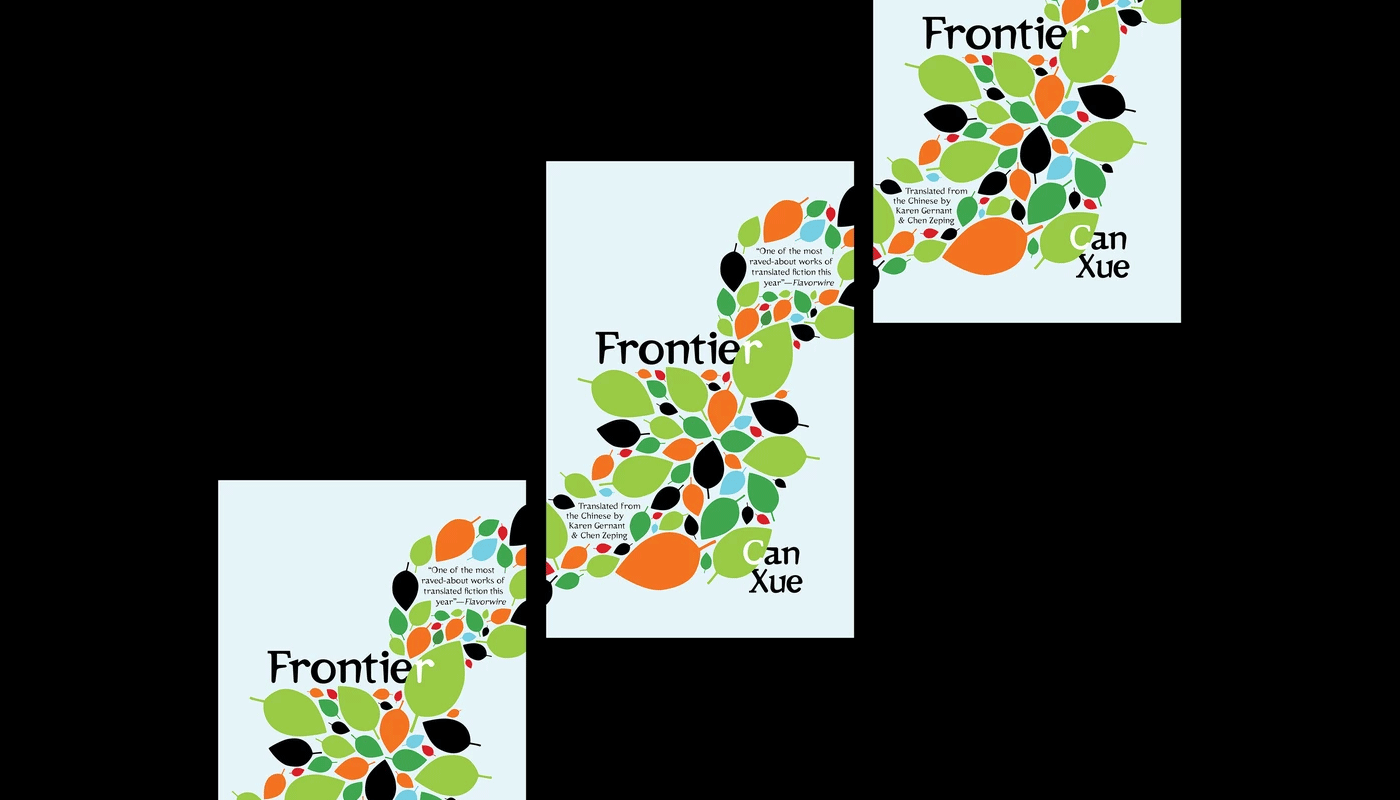“Can Xue”, Deng Xiaohua’s pseudonym, can mean both “the dirty snow that refuses to melt” and “the purest snow at the top of a high mountain”. An intriguing choice for an intriguing author becoming well known among fans of experimental literature. Susan Sontag said that “if China has one possibility of a Nobel laureate, it is Can Xue”, and Bradford Morrow described her work as one of the most “innovative and important” in contemporary world literature. Some compare her to Kafka, others compare her to Italo Calvino or Jorge Luis Borges. You really have to read her to understand all the comparisons and labels. Frontier is a good way to start.
The book opens with the story of Liujin, a young woman heading out alone to create her own life in Pebble Town, a place at the base of Snow Mountain where wolves roam the streets and certain enlightened individuals can see and enter a paradisiacal garden.
Entering an alternative reality not bounded by traditional descriptive coordinates, the reader is invited to give up on any expectations he or she might have about plot. John Darnielle stated that Can Xue’s books read “as if dreams had invaded the physical world”. That’s the feeling one could get from this reading: things are not as they appear and the physical shape of everything is deeply infused with its disembodied essence, which conduces to that feeling of being inside a dream. Things usually have one form and meaning from afar, but another from up close. Time as a barrier of intelligibility for a narrative also doesn’t apply to this book. We usually expect the end of a story to determine its meaning, but what we find here are multiple meanings determined by multiple stops and continuations. Can Xue once described her novels as written performances of contemporary dance: ideas and characters enter the scene and leave it just to fill the air with mystery and reflection. She has likened her writing to the pioneering choreography of Isadora Duncan. That’s the type of fluidity we’re talking about. That being said, the main topics of the book, such as migration, adaptation, even desire and loss, have a cohesive structure.
Pebble Town is the city at the frontier. We have only a few clues as to where this place is located. We know that the Gobi desert is north and Smoke City is far away; we also know that people from the south usually have a different accent. In fact, it seems that anyone who wasn’t born in the Frontier, doesn’t really know how to act or how to interpret reality. The area is unusually abundant with animal life: wagtails, willow warblers, geese, horses, snow leopards, wolves, sheep, goats, geckos, and frogs. This aspect has lead some reviewers to believe that it is set in ancient times. However, there are a few contemporary characteristics such as The Design Institute where all the characters work, having offices and a very typical corporative hierarchy. Liujin, different from the non-natives of the place, is described by all the other characters as a “true child of the frontier”, and so the readers can deduce that there’s something special about her. In a very denotative tone we get to know some aspects of her character, as when one possible love interest speaks to her and “he could sense a silent snow leopard making its way between them” (Kindle location 1649).
The rich descriptions create a contrast with the linear personality traits of the characters. It is as if the surroundings are more important than the characters themselves, or as if the characters are just part of the surreal landscape. One can’t go into this reading looking for empathy or identification. While the book starts and ends around a trip to the Gobi where Liujin stays in a Peculiar Hostel where the manager doesn’t have a head and where at some point Liujin looses a friend, any given chapter begins in such a way that it could foster a singular narrative but prefers not to. In fact, many chapters unexpectedly change direction from the way they started. This makes the plot thread hard to follow—that is, if the reader is still insisting on one! The truth is that after all this exquisite universe has been created, any customary solution at the end of the book would feel wrong.
There are certainly many dualities dwelling in this book’s themes, such as barbarism and civilization, the spiritual and the material, the mundane and the sublime, beauty and death, and Eastern and Western cultures. A reader can get all of that in just a few pages as long as he is ready and committed to decipher these intricate philosophical messages. In that sense, sometimes if feels that the mind must run to keep pace with what is presented, and it can become a tiring read. At first one might question if some of this is unintentional, but only to find that the nature of this dimension is confessed in a meta-narrative fashion that makes it very clear: “Here, everyone revealed some message when speaking, even though the one speaking was unaware of it” (Kindle location 1492).
Can Xue’s literary persona is quite famous for its boldness, and she has stated in an interview that her books are not for the unprepared reader. Ready or not, this book is certainly a fun adventure for those who dare to choose their own reading path.


Sara F. Costa is a Portuguese poet. She has published five poetry collections that won several literary prizes in Portugal. She has an MA in Intercultural Studies: Portuguese/Chinese from Tianjin Foreign Studies University. Her verses have been translated into several languages and featured in literary journals across the world. As an emerging European poet, she was an invited author of the International Istanbul Poetry Festival 2017. In 2018, Sara worked in the organization of The Script Road-Macau Literary Festival and China-European Union Literary Festival in Shanghai and Suzhou. She translates Chinese poetry into Portuguese and is currently living in Beijing coordinating events for the Spittoon Beijing-based arts collective. She also hosts the bi-weekly Spittoon Poetry Workshop.
